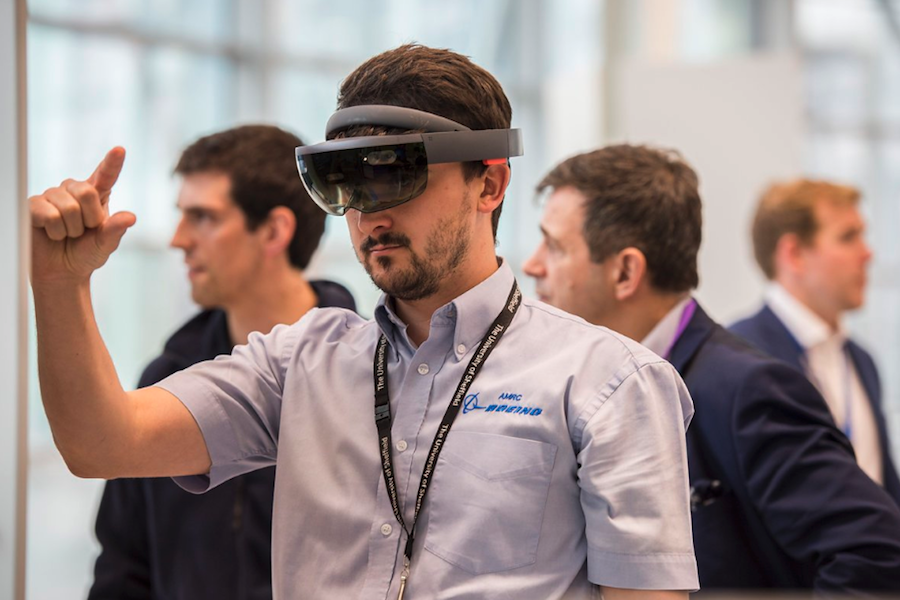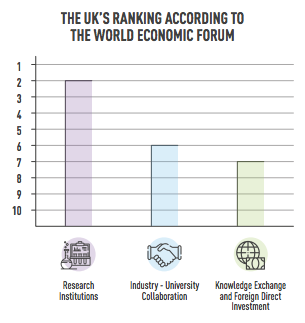Digital Readiness
Article
How building business partnerships with universities and research bodies can pay off

Universities are edifices of industry expertise. Building business partnerships with these institutions can create commercial opportunities and help small companies kickstart innovation.
Whether you’re trying to access knowledge, equipment, personnel or contacts there’s a lot to be gained working with universities and research bodies.
This feature looks at how several businesses have identified and built these relationships, and the benefits they can bring to your business.
Access to undergraduates and research equipment
University equipment allows small businesses to test new technology in ways that might not have otherwise been available.
Engineering technology company Newtecnic started working with the Engineering Department of Cambridge University in 2005 and has since cultivated partnerships with Imperial College, and UCLA and Georgia Tech in the US, among others.
“These relationships have grown in importance and strength as we apply academic rigour from first principles to our engineering practice,” said CEO Andrew Watts, who added staff have been invited to give lectures helping build these partnerships.
Newtecnic did the design engineering for the Grand Theatre de Rabat in Morocco, for example. Testing large concrete components and new types of fixings that helped minimise material requirements required equipment that’s only available at university engineering departments.

James Woodall, who is CTO and co-founder of 30-person company Intoware, echoed Watts’ comments. “It makes the product a bit more real. It gives us a place to start testing things. Doing this in an air conditioned office in Nottingham isn’t real. In Nottingham we don’t have components from an A380 wing,” said Woodall.
Undergraduates can benefit from companies building business partnerships, which provide them with an insight into industry. In return, small businesses can identify talent.
Newtecnic, which develops software to digitise processes, uses university partners to find candidates that have strong engineering backgrounds and enthusiasm for innovative design projects. It sponsored graduates to conduct research into building methods, including devising new ways for air to flow through buildings that takes the burden off air conditioning.
However, Watts said the process takes time. “Our work with universities helps evolve and nurture talent but is not necessarily a quick route to recruitment,” he explained.
State of the Relationship report from the National Centre for Universities and Business 2018 key findings:
- More interactions between universities and SMEs (11.4 per cent increase) but size of deal fell by 1.5 per cent
- The number of Innovate UK grants fell by 21.9 per cent, but average size of grant up 13.5 per cent
- The share of investment in R&D performed by universities from foreign sources increased slightly from £1.3bn to £1.35bn
- Growth in income licensing activity of 38.2 per cent from 2015, to £125.8m
- The share of graduates in employment fell 0.5 per cent to 73.4 per cent
Building business partnerships to create cutting-edge R&D
Technological breakthroughs often require different industry disciplines to work together. University initiatives can create bridges between companies and their own capabilities, helping small businesses that are domain experts leverage a wider range of expertise.
Intoware partnered with the University of Sheffield Advanced Manufacturing Research Centre (AMRC), which specialises in advanced machining, manufacturing and materials. Woodall said the company is working with a consortium led by AMRC to develop fault finding equipment for aircraft manufacturers, among other projects.
AMRC taps industrial partners like Boeing, Rolls-Royce, BAE Systems and Airbus, which effectively outsource development of particular initiatives. This helps a company like Intoware know the problem exists, identify who to sell the solution to and find other business to work with.

Finding the right partner
Universities work hard to build partnerships, running open days and advertising schemes. However, there’s no central resource to search for a relevant university. Rather, small businesses have to check individual institutions or search for sector-specific initiatives.
Many universities make maintaining relationships with postgraduates a priority and it’s worth starting the research process with your own alma mater. The government runs the Knowledge Transfer Partnership, which links businesses with an academic or research organisation and a graduate for between 12 and 36 months.
Newtecnic’s Watts stressed that it takes time to develop these relationships when they have been initiated.
“It can take years to design methods and scientifically calibrate, test and integrate programmes. My advice is to start early, make sure you are testing the right principles, and develop and maintain robust relationships with academic institutions,” he said.
Watts has three pieces of advice on building business partnerships with universities:
- Read university magazines to get a feel of what they want to achieve
- Start research early and iterate regularly to discover new methods and processes
- Understand universities’ motivation, support their aims and align your interests. Don’t be mercenary – support should be developed mutually
Working with university or research bodies adds credibility. Small businesses that are associated with a well-known university can use that to support their brand.
Building partnerships with universities on a procurement basis can be tough. Purchasing contacts are hard to reach and dependent on price.
The Furniture Recycling Group, which employs around 70 staff, has developed a number of unique processes to recycle mattresses, cutting down the amount of waste that goes to landfill. One new system allows the number of mattresses transported on an artic lorry to increase from 90 to 600, dramatically reducing air pollution.
It partnered with the University of St Andrews to transform textile recycling in its student accommodation and 2,000 mattresses, duvets and pillows have been donated for recycling since the partnership was launched in 2014.

However, managing director Nick Oettinger said the procurement side of partnerships with universities can be difficult to navigate.
“It very much depends on the individual. A lot of procurement people are exceptionally hard to get hold of. Some have the green agenda very high on their priorities, for some it’s a nice to have,” he said.
Innovative small businesses often lack access to the talent and equipment that universities have readily available, meaning building partnerships with these organisations can be incredibly powerful. Not only will they help companies access resources, but academic institutions can identify issues and bring together different partners to solve complex technological challenges.
Once partnerships have been identified it takes time to embed them and develop the kind of processes that will generate results. That said, building business partnerships of this kind relationships can provide a significant boost to a company’s R&D efforts – making it well worth the investment.
If you’d like to leverage the expertise of a university or academic institution then visit the Knowledge Transfer Partnership website to find out about recruiting a graduate.